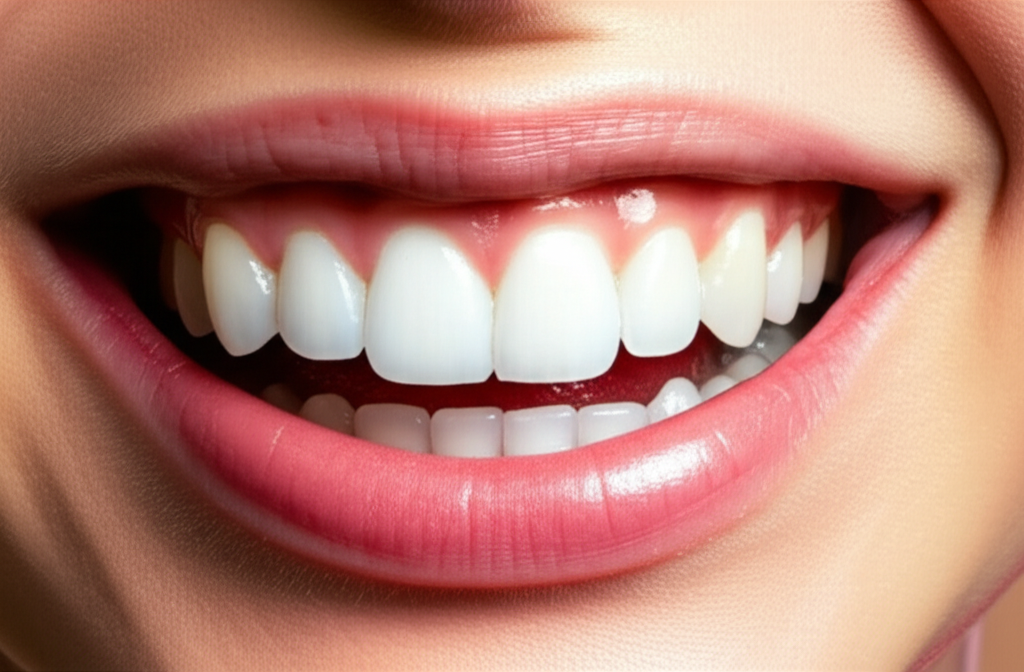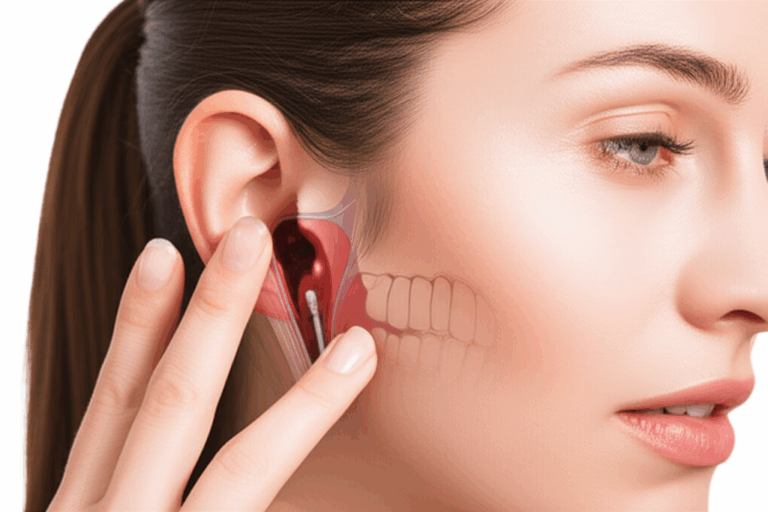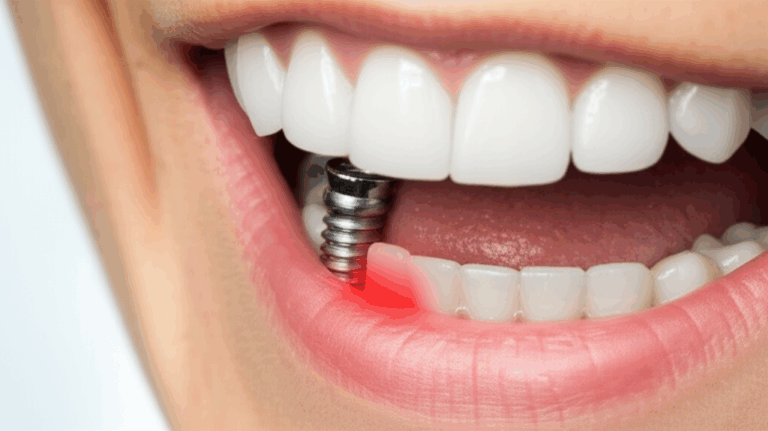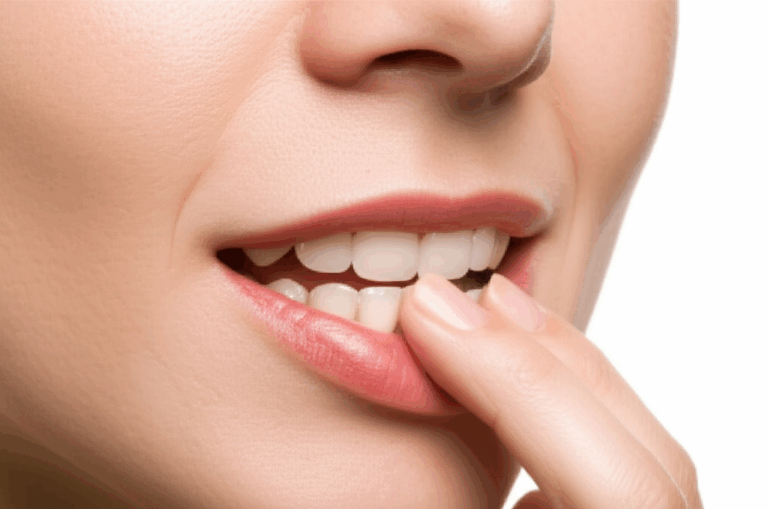
Can Thyroid Problems Cause Dental Problems? A Simple Guide
Worried About Your Teeth and Thyroid? You’re Not the Only One.
If you’re reading this, you might be confused about a weird taste in your mouth, a dry mouth, sore or bleeding gums, or even loose teeth. Maybe you started wondering, “Does this have to do with my thyroid?”
Let’s say this up front: you’re asking a good question! Lots of people with thyroid problems also have teeth trouble and don’t always know the two are connected. Maybe your dentist mentioned your gums are puffy, or you noticed things feel different in your mouth since starting thyroid medicine.
However you got here, you’re not alone—and there are real answers.
Table of Contents
- How the Thyroid Affects the Whole Body (And Your Mouth)
- Hypothyroidism: How a Slow Thyroid Messes With Your Teeth and Gums
- Hyperthyroidism: What Happens in Your Mouth With a Fast Thyroid
- Thyroid Medicines: Do They Cause Problems in the Mouth?
- Why Your Dentist and Doctor Should Work Together
- Tips: How to Take Care of Your Teeth When You Have Thyroid Issues
- Warning Signs: When to See Your Dentist or Doctor
- Main Points: Keeping Your Smile (and Body) Healthy
The Thyroid and Your Mouth: How Are They Connected?
You might be thinking, how can a little gland in my neck have anything to do with my teeth or gums? Think of your body like a band. If the main player—your thyroid—gets out of tune, everything else does too.
What Is the Thyroid?
The thyroid is a small, butterfly-shaped gland in your neck. Its main job is to release hormones—mostly T3 and T4—that tell your body how fast or slow to do things. These hormones help you build bones, heal, and make enough spit.
#### Why Does This Matter for Your Mouth?
- Making Saliva: Thyroid hormones change how much spit you make. Saliva isn’t just to help swallow; it washes away food and germs.
- Bone Health: Bones keep your teeth in place. Thyroid hormones help bones stay strong—including the bones in your jaw.
- Immune System: When your body is off, your defenses don’t work as well. Thyroid problems can mess with these defenses, including in your mouth.
- Healing: If your hormones are good, you heal faster after dental work.
In short: If your thyroid isn’t doing well, your mouth can feel it pretty fast.
Hypothyroidism: How a Slow Thyroid Affects Teeth and Gums
When your thyroid is too slow (hypothyroidism), everything in your body, including your mouth, slows down too.
Signs You Might Notice
#### 1. Dry Mouth
Think of your mouth like a garden. Without enough water (saliva), things get dry and not healthy. Hypothyroidism makes your spit glands work less, so:
- Food and germs stick to your teeth longer.
- Bad germs grow faster.
- Eating or talking can get tough.
Fun Fact: Dry mouth happens in up to 60% of people with hypothyroidism—about twice as much as most people.
#### 2. Gum Problems: Gingivitis & Periodontitis
Your gums are the base for your teeth. If they are too dry or not looked after, they get weak. Hypothyroidism can make your gums swell or bleed, heal slower, and get infected more. Gum disease is about twice as common in people with thyroid problems.
#### 3. Slow Tooth Growth and Jaw Problems in Kids
Kids with slow thyroid might get their adult teeth late, or in the wrong order. Their jaw bones might also grow slower, sometimes making their bite not line up right.
#### 4. Big Tongue (Macroglossia)
Have you felt your tongue seems a bit too big? Sometimes with hypothyroidism the tongue gets swollen, and you see little teeth marks on the side.
#### 5. Burning or Weird Tastes
Some people get a burning, tingling, or metal taste, especially with a dry mouth.
#### 6. Mouth Yeast (Thrush)
Dryness plus less body defense can let yeast overgrow, called thrush—white spots in your mouth or on your tongue.
#### 7. Weak or Brittle Teeth
Not enough saliva and bone trouble can make teeth chip or break more easily. Cavities happen more—one study found twice as many cavities in people with hypothyroidism.
In short: If you have a slow thyroid and your mouth feels weird, it’s not just your imagination!
Hyperthyroidism: When Your Thyroid Is Too Fast
If your thyroid works too fast (hyperthyroidism), your mouth changes too:
What You Might Notice
#### 1. Jaw Bone Loss
Hyperthyroidism can make all your bones thin, even your jaw! Your teeth might get loose or even fall out, and dental implants may not stay put.
#### 2. Worse Gum Disease
Fast body processes break down tissues faster. If your gums bleed a little, hyperthyroidism can make it worse, and serious gum disease can come on quick.
#### 3. Early Teeth in Kids
Kids might lose baby teeth or get adult teeth sooner, which might mess with their bite.
#### 4. More Cavities
A fast body might make you hungrier for sugary snacks, or change your spit, and give germs a better chance to make holes in your teeth.
#### 5. Burning Mouth and Sores
With a fast thyroid, your immune system is different, and things heal differently. Mouth sores or burning might happen more.
#### 6. Mouth Infections
Sores like canker sores or thrush (mouth yeast) show up more often if your thyroid is too fast.
Fast Fact: Dentists sometimes find deeper spaces (“pockets”) between teeth and gums in people with hyperthyroidism. That’s a big sign of gum disease.
Thyroid Medicines: Can They Cause Mouth Problems?
Even if your thyroid is under control, the medicine you take might cause side effects in your mouth.
#### Common Examples
- Levothyroxine: For hypothyroidism, sometimes causes dry mouth—especially if your dose isn’t right.
- Anti-thyroid medicine (like Methimazole, PTU): Sometimes, these lower your body’s defense a little, so getting thrush is easier.
- Radioactive iodine (for Graves’ disease): Can lower spit production.
#### What’s Most Important?
Keeping things steady. Don’t skip doses. If you notice mouth changes after starting or changing your medicine, tell your doctor and dentist.
Why It Helps When Your Dentist and Doctor Work Together
It’s kind of like patching a leak in the basement by only painting the wall—you need to fix the real problem underneath. The best care is when your dentist and doctor both know what’s going on.
- Dentists: Spot mouth signs of thyroid problems—even before you feel sick. This includes gum swelling, healing issues, and changes in tongue size.
- Doctors: Make sure your medicine is the right type and amount for you, which also affects your mouth.
- You: Make sure both know about each other! Always tell your dentist about your thyroid, and tell your doctor about any mouth changes.
Working together can save pain, money, and time.
How to Take Care of Your Teeth With a Thyroid Problem
So, you know your thyroid can mess with your mouth. Now what?
What You Can Do Every Day
#### Keep Your Mouth Clean
- Brush twice a day with a soft toothbrush and fluoride toothpaste. Be gentle, especially if your gums bleed.
- Floss every day to get rid of stuff between teeth and under gums.
- Try a mouthwash if you tend to get gum infections.
#### Fight Dry Mouth
- Sip water often. Stay away from sugary or acidic drinks.
- Chew sugar-free gum or sugar-free lozenges for extra spit.
- Use a humidifier at night, especially in the winter or if it’s dry.
- Over-the-counter dry mouth gels or sprays can help if mouth is very dry.
- Avoid smoking and alcohol—they dry your mouth out more.
#### Eat Right
- Eat crunchy fruits and veggies—they clean your teeth as you chew and help you make spit.
- Cut down on sweets. Sweets plus dry mouth is a recipe for cavities.
- Eat enough calcium, vitamin D, and protein for strong teeth and bones.
#### Keep Seeing Your Dentist
- Let your dentist know about your thyroid problem.
- Get your teeth cleaned at least twice a year, more often if you’ve had issues.
- Ask about gum pockets and jaw bone health, sometimes your dentist will take an X-ray.
#### Take Your Medicines Right
- Don’t skip doses. Steady hormone levels help your mouth too.
- Tell your doctor or dentist if you get new mouth symptoms.
#### Lower Your Stress
Thyroid issues and mouth troubles both get worse with stress. Try things like walks, meditation, or something that helps you relax.
Get Special Help if Needed
If you need something big, like an implant or special dental repair, look for places that work with medical teams. Dental labs focused on custom crowns or bridges, like a crown and bridge lab, might be extra helpful for people with jaw bone changes from thyroid problems.
Warning Signs: When to Call a Professional
Don’t ignore these symptoms:
- Dry mouth that doesn’t stop, even with water
- Bleeding, sore, or swollen gums (that don’t get better with brushing)
- Mouth sores or white spots (thrush) that come back
- Loose teeth or changes in how your bite feels
- More cavities, even though you brush well
- Burning or odd taste in your mouth
- Jaw pain or slow healing after the dentist
If you notice any of these—especially along with being extra tired, changes in weight, or other new body symptoms—talk to both your dentist and doctor. Most of the time, these problems get better once your thyroid is steady and you get the right mouth care.
Who Should Watch Out? Is It Only for People Who Already Have Thyroid Problems?
Good news: You can do a quick check on yourself.
Pay Close Attention If You…
- Already know you have thyroid trouble (hypo- or hyperthyroidism, Hashimoto’s, Graves’)
- Take thyroid medicines
- Are a kid or teenager whose teeth are coming in late, or jaw looks different
- Just started having mouth problems for no clear reason
- Have family with thyroid or autoimmune disease
For Parents: Thyroid issues in kids are rare, but can really affect teeth and jaws for life. If a dentist mentions slow tooth growth, jaw differences, or early gum problems, talk to your child’s doctor.
By the Numbers: What Does the Research Say?
Here’s a quick table of some big connections between thyroid and mouth issues:
| Thyroid Problem | Mouth Issue | How Common Is It? |
|---|---|---|
| Hypothyroidism | Dry Mouth | 40–60% vs. 20% (most people) |
| Hypothyroidism | Cavities | 2x more common |
| Hypothyroidism | Gum Disease | 1.5–2x more common |
| Hypothyroidism | Burning Mouth | 15–20% |
| Hyperthyroidism | Jaw Bones Thin | More common |
| Hyperthyroidism | Early Teeth | Possible in kids |
| Both | More Infections | Higher chance of thrush |
Source: Made from info in top medical journals (see end of article).
Common Myths—Clear Answers!
Let’s clear up the confusion:
Myth #1: “If I brush and floss, my thyroid can’t cause teeth problems.”
Truth: Cleaning helps, but if you have bone loss or dry mouth from hormone troubles, you’ll need both mouth and medical help.
Myth #2: “Only older people with thyroid problems get teeth trouble.”
Truth: Kids and teens can get problems too—especially with tooth growth and jaw size.
Myth #3: “All mouth problems mean I need more thyroid medicine.”
Truth: Sometimes it’s from your medicine or something else, not just the dose.
What’s the Main Point? Your Mouth and Body Work Together
Let’s remember:
- Your thyroid health and your mouth health are linked.
- Both too-slow and too-fast thyroid can mess up your mouth—even before you notice anything else.
- The first signs might be dry mouth, sore gums, jaw issues, or a burning feeling.
- Good teeth means taking care of your thyroid—and seeing a dentist!
- Talk openly with your dentist, doctor, or digital dental lab if you use special teeth devices.
- Don’t ignore new symptoms; most mouth issues from thyroid get better with the right treatment on both sides.
What You Should Do:
- Watch out for new mouth symptoms and tell both your dentist and doctor.
- Don’t miss dental checkups—go more often at first, if needed.
- Take your thyroid medicine the way your doctor says.
- Try these easy cleaning and dry mouth tips.
- Speak up if you or your child has tooth or gum problems—it could be an early warning, not just bad luck.
You deserve a healthy mouth—and a healthy body. If you’re ready for the next step, make an appointment with your care team or look into special dental care as needed. And remember, asking good questions—like you just did—puts you ahead in looking after your health.
Want to Find Out More?
- Want to read about more mouth problems? Check dental diseases or teeth health.
- Have big dental repair or lost jawbone? Learn more from a crown and bridge lab.
- Need basic tooth facts? Visit our teeth information page.
Sources & Proof
- American Dental Association (ADA): Oral Health and Systemic Connections
- American Thyroid Association: Thyroid Disease and Oral Health
- Info from top journals: J Clin Endocrinol, J Periodontology, Pediatric Dentistry, Oral Diseases & Therapeutics.
Don’t forget: You don’t need to pick between a healthy thyroid and healthy teeth. With the right info and a care team you trust, you can have both!








